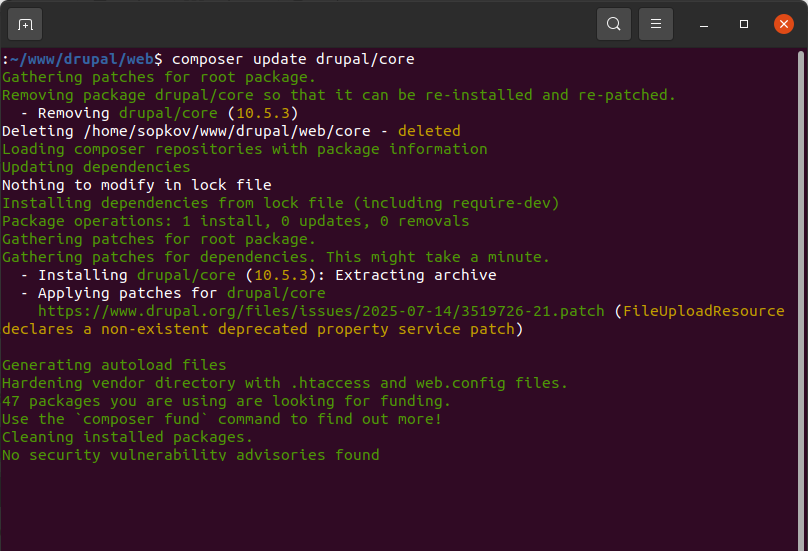
Intro
This guide is for users who need to apply a specific update or change that has not yet been incorporated into a module's official release.
A patch is a small piece of code used to fix a bug, correct a security vulnerability, or add a new feature to a software program without replacing the entire file. Think of it as a quick fix or a bandage for code. It's essentially a set of instructions that tells the program what lines of code to remove and what new lines to add or change.
Patches for Drupal modules and core are available on Drupal.org
Setup:
Web server running on Ubuntu 18.04, 20.04, 22.04, LAMP stack
Drupal 8,9,10,11
Installed Drush, Composer
Prepare
In order to install and manage patches using Composer, we must first require the cweagans/composer-patches plugin. This will then allow us to apply patches automatically.
Warning
Before starting the update, the most important step is to backup the entire site.
Install cweagans/composer-patches package
Specify the patch to install via Composer
The next step is to put the patch installation directive in the composer.json file
"drupal/core": {
"FileUploadResource declares a non-existent deprecated property service patch": "https://www.drupal.org/files/issues/2025-07-14/3519726-21.patch"
}
},
We would need to edit composer.Json file,
add the code that will tell Composer to install our patch.
Final step: Run Composer update
After we've placed our patch for Drupal core in composer.json file, we need to run the Composer update command. This will launch the update operation and install our specified patch.
We need to run composer update command so the patch will be installed to our Drupal installation

Summary
This guide explains how to apply a patch to a Drupal 10 project using the cweagans/composer-patches plugin. The process involves adding the patch details to your composer.json file and then running composer update to apply the fix.
